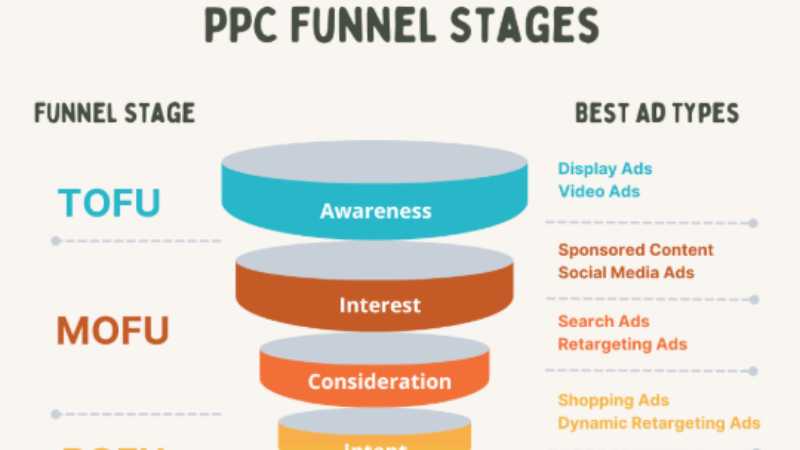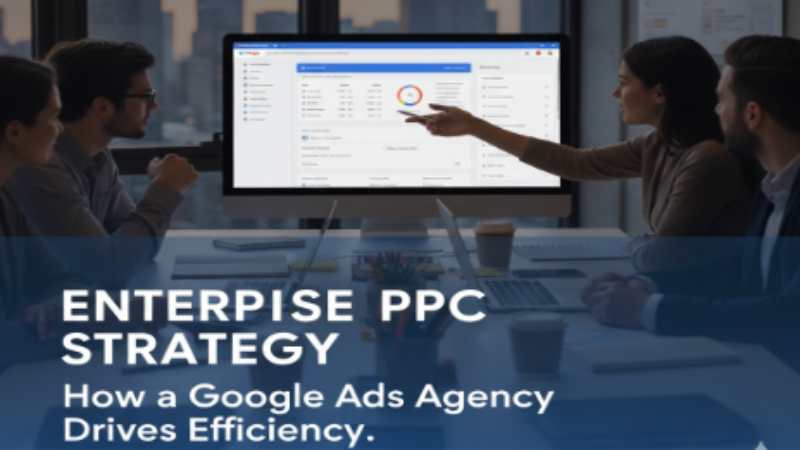Let’s be real, managing enterprise-level PPC isn’t just about throwing money at Google. It’s a high-stakes game of precision, data, and relentless optimisation. You’re not just running campaigns; you’re orchestrating a complex digital ecosystem where every dollar needs to work harder, smarter, and with a clear purpose. For CMOs and marketing leaders, the goal isn’t just impressions; it’s tangible, measurable growth that impacts the bottom line.
Challenges of Managing Large Budgets at Scale
When you’re dealing with substantial advertising budgets, the complexity explodes. We’re talking about managing hundreds, sometimes thousands, of campaigns across various products, services, and geographic regions. It’s a lot to keep track of, and frankly, it can feel like trying to herd cats while juggling flaming torches. One of the biggest hurdles is simply the sheer volume of data. You’ve got performance metrics pouring in from every angle, making it tough to discern signal from noise. Without advanced analytics and reporting tools, internal teams can quickly get bogged down in spreadsheets, losing precious time that could be spent on strategy. According to a recent report, 63% of marketers struggle with data overload, impacting their ability to make timely decisions (Marketing Dive, 2023) (Source). Then there’s the constant need for optimisation. Manual bid adjustments across a vast account structure are incredibly time-consuming and prone to human error. You’re trying to outmanoeuvre competitors, adapt to market shifts, and keep your ad spend efficient, all at once. It’s a monumental task, and it’s why many enterprise brands look for specialists `adwords management services` to navigate this intricate landscape. An internal team, no matter how talented, often lacks the specialised tools and dedicated focus that an external `agency google ads` brings to the table. They’re simply built differently.
How Agencies Leverage Automation and AI

This is where the magic happens, or at least, where modern efficiency takes center stage. A top-tier `google ads marketing agency` isn’t just about having smart people; it’s about having smart people leveraging smart technology. They understand that scaling enterprise PPC effectively means embracing automation and artificial intelligence, not shying away from it. Agencies have access to, and expertise in, a suite of advanced tools that streamline operations and unlock deeper insights. We’re talking about platforms that can automate repetitive tasks, analyze performance trends far faster than any human ever could, and even predict future outcomes based on historical data. This isn’t about replacing human strategists; it’s about empowering them to focus on the big picture, the creative breakthroughs, and the strategic pivots that truly move the needle. Think about it: instead of spending hours manually adjusting bids, an agency can deploy smart bidding strategies that react in real-time to auction dynamics. Instead of guessing which ad creative will perform best, they can use AI-powered platforms to test thousands of variations at lightning speed. This kind of technological edge is often what separates a good `best google ads agency` from one that delivers exceptional, scalable results.
Smart bidding, creative testing, and data signals
Let’s dig into specifics because this is where the rubber meets the road. Smart bidding, for instance, isn’t just a buzzword; it’s a game-changer. These algorithms, powered by machine learning, analyze a massive array of signals—device, location, time of day, audience demographics, past performance, and even competitive intensity—to set bids at the optimal moment for each individual auction. This means your budget is always working towards your specific goals, whether that’s maximizing conversions, conversion value, or impression share. It’s like having a hyper-efficient trading desk for your ad spend, constantly optimizing for the best return. Creative testing is another area where automation and AI shine. Manually testing ad copy, headlines, and visuals across a large account is a logistical nightmare. But with platforms like Quickads, an AI-powered ad creation and optimization suite, marketers can automate ad testing, scale creative production, and improve campaign ROI significantly. This means you’re not just guessing what resonates with your audience; you’re proving it with data, constantly iterating and improving your messaging. A skilled google ads agency uses these tools to ensure your ads are always fresh, relevant, and performing at their peak. They’re not just setting it and forgetting it; they’re continuously refining and adapting. And then there are data signals. Every interaction, every search query, every click, and every conversion leaves a trail of data. Agencies are experts at collecting, interpreting, and acting on these signals. They use advanced analytics to identify emerging trends, uncover hidden audience segments, and spot opportunities for expansion or optimization that might otherwise go unnoticed. This deep dive into data allows for hyper-targeted campaigns and personalized ad experiences, leading to higher engagement and better conversion rates. It’s about being proactive, not reactive, in a fast-paced digital environment.
ROI Measurement Framework for CMOs
For CMOs, it all boils down to return on investment. You’re accountable for marketing spend, and you need clear, actionable insights into how your Google Ads budget is translating into business growth. A strong `google ad marketing agency` understands this implicitly and provides a robust framework for measuring ROI that goes beyond superficial metrics. It starts with defining clear, measurable KPIs that align with overall business objectives. We’re not just talking about clicks and impressions here. We’re looking at metrics like customer acquisition cost (CAC), lifetime value (LTV) of acquired customers, return on ad spend (ROAS), and incremental revenue generated. You want to understand the true impact on your bottom line, not just the top of the funnel. A comprehensive ROI framework often includes: Multi-touch attribution models: Moving beyond last-click attribution to understand the full customer journey and the role Google Ads plays at various touchpoints. This gives a more accurate picture of performance. Incrementality testing: Designing experiments to prove that your Google Ads spend is actually driving new conversions, rather than just cannibalizing organic traffic or conversions that would have happened anyway. Customer Lifetime Value (LTV) analysis: Linking ad spend to the long-term value of customers acquired through Google Ads, providing a more holistic view of profitability. Unified reporting dashboards: Providing clear, consolidated views of performance across all campaigns and channels, allowing for quick insights and strategic adjustments. According to Think with Google (2024) (Source), brands with integrated data dashboards are 2.5x more likely to exceed their revenue goals. This isn’t just about fancy reports; it’s about providing the strategic intelligence you need to make informed decisions, justify budget allocations, and demonstrate the tangible value of your PPC efforts to the executive team.
Key Takeaways
Navigating enterprise PPC requires a blend of sophisticated strategy, advanced technology, and deep expertise. Here’s what to keep in mind: Scale brings complexity: Large budgets demand meticulous management and advanced tools to avoid data overload and inefficiency. Automation is non-negotiable: AI and machine learning are essential for smart bidding, rapid creative testing, and leveraging crucial data signals. Agencies offer a competitive edge: They bring specialised tools, dedicated focus, and a breadth of experience that internal teams often can’t match. ROI is paramount: CMOs need a robust framework focusing on LTV, CAC, and incrementality, not just vanity metrics. Partnering with a specialised Google Ads agency can significantly boost efficiency and deliver measurable, scalable results, helping you stay ahead in a competitive market. In fact, companies that partner with agencies report a 20% higher ROAS on average (HubSpot, 2023) (Source).
Conclusion
Ultimately, enterprise PPC isn’t just about spending big; it’s about spending smart. The sheer scale and complexity demand a proactive, data-driven approach that leverages the best of human strategy and technological innovation. By understanding the challenges, embracing automation, and focusing on a robust ROI measurement framework, CMOs can transform their Google Ads efforts from a cost center into a powerful engine for sustainable business growth. It’s about optimizing every facet, from the initial bid to the final conversion, ensuring every dollar is invested wisely and works hard for your brand.
